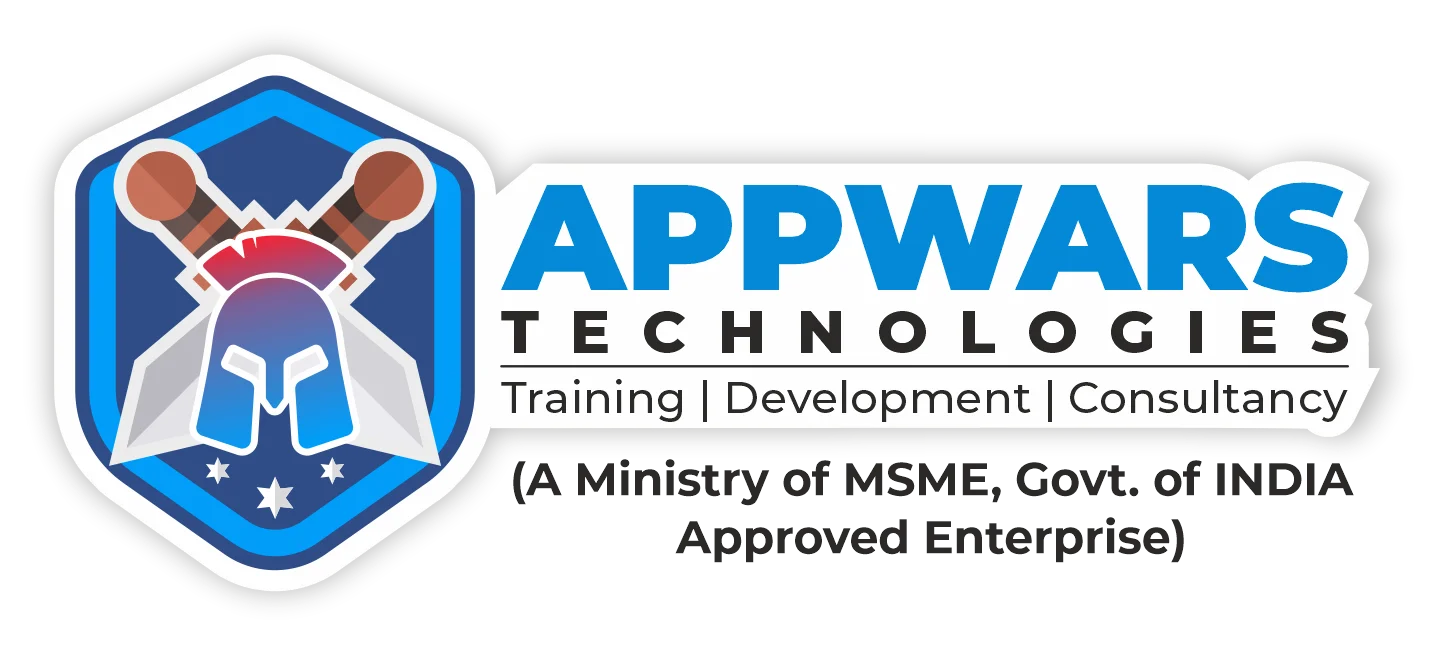Introduction to Performance Marketing
Performance marketing is a digital advertising strategy where advertisers pay only for specific actions such as clicks, leads, or conversions. This approach allows companies to track their return on investment (ROI) more precisely, making it a highly efficient method in the digital landscape. Unlike traditional marketing, where businesses often invest in brand awareness without a direct way to measure the effectiveness of their campaigns, performance marketing provides measurable results, enabling marketers to optimize their strategies in real-time.
Within this framework, performance marketing encompasses various techniques, including pay-per-click (PPC) advertising, affiliate marketing, and social media campaigns. Each method focuses on specific performance metrics, fostering an environment where marketing efforts are continuously refined based on data-driven insights. As businesses increasingly migrate to digital platforms, performance marketing has emerged as a critical element of successful marketing strategies, offering unparalleled opportunities for growth and engagement.
Furthermore, performance marketing stands out for its emphasis on accountability. Various platforms and technologies, such as Appwars technologies, have been developed to assist marketers in analyzing campaign performance. These tools provide invaluable insights and streamline data collection, allowing for a more accurate assessment of what works and what does not. This focus on measurable outcomes distinguishes performance marketing from traditional marketing strategies, where results may not be immediately apparent.
In the current digital environment, characterized by rapid technological advancements and shifting consumer behaviors, understanding performance marketing is essential for any business looking to maximize their marketing efforts. By focusing on tangible results, organizations can allocate resources more effectively and enhance their overall marketing performance.
Key Concepts of Performance Marketing
Performance marketing is a digital advertising strategy that is centered around driving specific actions from a target audience, such as generating leads, acquiring customers, or boosting sales. To fully grasp this marketing framework, it is essential to familiarize oneself with various key concepts, metrics, and terminology that underpin its effectiveness. One of the most important metrics in performance marketing is the Cost Per Acquisition (CPA). This figure represents the total cost incurred to acquire a customer, factoring in expenses related to ad campaigns, creative development, and other relevant costs. By understanding CPA, marketers can assess their campaign efficiency and optimize their budgets accordingly.
Another vital metric is the Return on Ad Spend (ROAS), which measures the effectiveness of advertising campaigns by calculating the revenue generated for every dollar spent on advertising. A higher ROAS indicates a more successful performance marketing strategy, showcasing that the ads are effectively translating into sales or other desired actions. Monitoring and analyzing ROAS helps marketers refine their strategies, allowing for better allocation of resources and maximizing their returns.
Tracking performance data is crucial in the realm of performance marketing. With advanced analytics tools, marketers can continuously monitor their campaigns to assess performance indicators and understand audience behavior. This data-driven approach enables businesses to make informed decisions, refine their targeting efforts, and enhance overall campaign performance. Implementing robust tracking mechanisms ensures that marketers receive timely insights, which can further lead to improved conversions and revenue generation. In addition, performance marketing with platforms such as AppWars Technologies offers integrated solutions for streamlined campaign tracking and analysis. Moreover, by leveraging these technologies, businesses can gain a competitive edge, ensuring their marketing strategies are both responsive and effective.
Major Channels of Performance Marketing
Performance marketing encompasses a variety of channels that enable businesses to optimize their marketing efforts based on measurable results. Among the most significant channels are Pay-Per-Click (PPC) advertising, affiliate marketing, and social media marketing. Each of these channels plays a vital role in the performance marketing ecosystem, allowing companies to reach target audiences effectively.
PPC advertising is a widely-used model where advertisers pay a fee each time their ad is clicked. This channel primarily operates through search engines and social media platforms. Advertisers create campaigns targeting specific keywords relevant to their products or services. Each ad is displayed to users who search for these keywords, providing the potential for high-quality leads. The primary advantage of PPC is its ability to deliver immediate results, giving advertisers accurate data on ad performance and ROI, thus optimizing their campaigns on-the-fly.
Affiliate marketing represents another crucial channel in performance marketing, where businesses partner with affiliates who promote their products or services. Affiliates earn a commission for each sale or lead they generate through their marketing efforts. This channel leverages the reach and influence of affiliates, enabling brands to tap into new audiences. The effectiveness of affiliate marketing lies in its ability to drive traffic and convert leads without upfront costs, as payments are made only for successful transactions.
Social media marketing is also an essential component of performance marketing. Platforms such as Facebook, Instagram, and LinkedIn allow businesses to create targeted ads aimed at specific user demographics. By analyzing engagement metrics, companies can adapt their strategies based on performance. Social media marketing fosters community interaction and brand loyalty, enhancing awareness through shares and organic growth.
In conclusion, the major channels of performance marketing—PPC advertising, affiliate marketing, and social media marketing—offer distinct advantages. By leveraging these channels, businesses can enhance their marketing outcomes, optimize their spending, and achieve measurable results.
Understanding Pay-Per-Click (PPC) Advertising
Pay-Per-Click (PPC) advertising is a fundamental aspect of performance marketing, allowing businesses to drive traffic to their websites through targeted ads. This model operates on a bidding system where advertisers pay a fee each time their ad is clicked. Major platforms offering PPC services include Google Ads and Facebook Ads, which are among the most widely used for online advertising campaigns.
To begin with, advertisers using Google Ads select specific keywords related to their products or services. Through a bidding process, they compete for ad placements on search engine results pages. The position of an ad is determined not only by the bid amount but also by the quality score, which gauges the relevance and effectiveness of the ad. This interplay ensures that users are presented with ads that are not only paid for but also valuable, making it an essential facet of performance marketing strategy.
Similarly, Facebook Ads provide a robust platform for PPC campaigns. Advertisers can create targeted ads based on user demographics, interests, and behaviors, reaching their audience more effectively. The process involves selecting campaign objectives, defining the target audience, and setting a budget. Advertisers can also track their ad performance in real-time, using metrics such as click-through rates (CTR) and conversion rates to gauge effectiveness.
Measuring the success of PPC efforts is crucial. Metrics such as cost-per-click (CPC), return on ad spend (ROAS), and overall conversion rates help advertisers assess their campaigns. Tools available on platforms like Google Ads and Facebook Ads facilitate this analysis, enabling marketers to optimize their strategies and allocate budgets more efficiently. Through these insights, businesses can refine their performance marketing tactics in real time, ensuring continuous improvement in their advertising efforts.
Exploring Affiliate Marketing
Affiliate marketing is a prevalent strategy within the realm of performance marketing, whereby businesses collaborate with affiliate partners to promote their products and services. This model not only helps companies to expand their reach but also incentivizes affiliates, who earn a commission based on their performance. By effectively leveraging this marketing channel, businesses can enhance their sales while affiliates can monetize their platforms, making it a valuable mutually beneficial arrangement.
At the core of affiliate marketing lies the commission structure. Businesses typically offer different types of compensation, including pay-per-click (PPC), pay-per-lead (PPL), and pay-per-sale (PPS). Each model aligns the affiliates’ financial rewards based on their specific contribution to the sales funnel. For instance, PPC allows affiliates to earn commissions when potential customers simply click on their promotional links, while PPS offers a commission only when a sale is finalized. This diversity in commission structures provides flexibility for both parties involved.
Affiliates come in various types, each focusing on different strategies to drive traffic and sales. Some may be influencers with substantial social media followings, while others might be niche bloggers or content creators who write extensive reviews and guides. The proliferation of diverse affiliates offers businesses numerous opportunities to connect with potential customers effectively. Partnering with affiliates who resonate with target audiences can result in convincing and trustworthy promotions of a brand’s products.
Ultimately, building strong partnerships in affiliate marketing is crucial. Businesses should focus on nurturing relationships with their affiliates through consistent communication and providing them with the necessary tools and resources for effective promotion. A solid partnership not only encourages affiliates to perform better but also instills loyalty, leading to long-term success in the competitive landscape of performance marketing.
Utilizing Social Media for Performance Marketing
In today’s digital marketing landscape, social media platforms have emerged as invaluable tools for performance marketing. These platforms allow businesses to connect with target audiences in real-time, providing unique opportunities to tailor marketing strategies that yield measurable results. Utilizing social media for performance marketing involves understanding your audience and crafting engaging content that resonates with them.
To effectively leverage social media, brands must conduct thorough audience targeting. This entails defining the demographics, interests, and behaviors of potential customers. By using statistical tools and insights from social media platforms, companies can create segmented marketing campaigns that would increase engagement and drive conversions. Understanding the audience not only helps in targeting but also plays a critical role in messaging; it allows marketers to communicate in a manner that aligns with the audience’s preferences.
Creating engaging content is at the core of successful social media performance marketing. Content should be tailored to the specific platform and the audience’s expectations. This may encompass a variety of formats, such as videos, infographics, or user-generated content. Marketing strategies that focus on storytelling and valuable information are more likely to capture attention, encouraging users to interact, share, and ultimately convert. Additionally, incorporating call-to-action (CTA) elements can further enhance user engagement, driving potential customers to take desired actions.
Moreover, analytics play a vital role in optimizing performance marketing campaigns on social media. Constant monitoring of key metrics, such as engagement rates, conversion rates, and click-through rates, allows marketers to assess the effectiveness of their strategies. Utilizing tools provided by social media platforms enables data-driven decision-making, facilitating adjustments to improve campaign performance continuously. In conclusion, by combining targeted audience strategies, engaging content, and insightful analytics, businesses can effectively harness the power of social media for performance marketing, driving growth and success in their campaigns.
Why Performance Marketing Matters
In the contemporary landscape of advertising, performance marketing has gained significant traction, representing a shift towards more accountable and results-driven strategies. As businesses increasingly embrace digital-first approaches, the relevance of performance marketing becomes evident. It allows brands to allocate their advertising budgets more effectively, ensuring that every dollar spent yields a measurable return on investment (ROI).
One of the primary advantages of performance marketing is its precise targeting capabilities. With the advent of advanced analytics and user behavior tracking, businesses can identify and reach their ideal audience segments with remarkable accuracy. This ensures that marketing campaigns resonate with the intended recipients, thereby reducing wastage of resources. Through platforms that utilize appwars technologies, advertisers can tap into real-time data, enabling them to adjust their strategies on the fly. This adaptability enhances their ability to engage consumers and meet their needs effectively.
Moreover, performance marketing fosters transparency and accountability. Unlike traditional advertising methods, where the effectiveness may be obfuscated by a lack of clarity, performance marketing relies on clear metrics and analytics to gauge success. Marketers can track various performance indicators, such as conversion rates, click-through rates, and customer acquisition costs. This accountability not only helps in assessing the efficacy of campaigns but also furnishes valuable insights that guide future marketing decisions.
In a rapidly evolving marketplace, the ability to connect with customers in a meaningful way is paramount. Performance marketing plays a crucial role in driving business growth, as it empowers companies to forge stronger relationships with their audiences. By focusing on measurable outcomes and optimizing campaigns for success, businesses can navigate the competitive landscape more strategically and effectively.
Setting Goals and Measuring Success
Establishing clear goals is essential for any performance marketing campaign, as it provides direction and a measurable framework for success. Goals should be specific, measurable, achievable, relevant, and time-bound (SMART), helping businesses to set realistic expectations and establish criteria for evaluating performance. When companies define their objectives, they lay the foundation for effective performance marketing strategies that can drive desired outcomes.
Key performance indicators (KPIs) play a critical role in assessing the effectiveness of performance marketing initiatives. These metrics, such as conversion rates, customer acquisition costs, and return on advertising spend, offer valuable insights into how well the campaigns are performing. By selecting the right KPIs, businesses can focus on what truly matters and refine their marketing strategies accordingly. Furthermore, appwars technologies can assist in monitoring these indicators seamlessly, providing real-time data that informs decisions and strategy adjustments.
To effectively track performance, it is crucial to utilize reliable tools that can collect, analyze, and report data comprehensively. Analytics platforms and performance marketing software can help interpret the data generated from marketing efforts and facilitate informed decision-making. Regular monitoring of KPIs allows marketers to spot trends, identify areas for improvement, and pivot strategies when necessary. Organizations should be prepared to test and optimize their campaigns continually, ensuring that they stay aligned with their initial goals and can respond to changing market dynamics.
Ultimately, establishing effective goals and measuring success is fundamental for performance marketing. By leveraging data-driven insights and technology, businesses can enhance their campaigns over time, maximizing returns and leading to sustained growth. As the landscape of digital advertising evolves, flexibility and adaptability will be key components for achieving long-term success in this field.
Getting Started with Performance Marketing
Embarking on the journey of performance marketing can be both exciting and challenging for beginners. To commence effectively, it is essential to choose the right channels that align with your business objectives. Start by determining your target audience and identifying where they spend their time online. Common channels include social media platforms, search engines, email marketing, and affiliate marketing. Each channel has its strengths, and understanding these can significantly impact the success of your initial campaigns.
Once the channels are selected, setting a budget is a critical next step. Performance marketing is often centered around measurable results, making it crucial to allocate your budget wisely. Consider beginning with a modest budget to test the waters and gradually increase it as you identify which strategies yield the best results. This gradual approach allows for optimizing your campaigns without incurring significant losses in the early stages.
Creating your first campaigns involves careful planning and execution. Start by defining clear, measurable goals that align with your overall business objectives. For instance, your goal might be to increase website traffic or generate lead conversions. Alongside this, develop engaging and targeted ad creatives that resonate with your audience. Utilize A/B testing to determine which variations perform better, allowing you to refine your strategy continuously.
To supplement your knowledge and skills in performance marketing, consider accessing various online resources. Numerous platforms offer comprehensive courses, webinars, and articles specifically focused on performance marketing strategies. Websites such as HubSpot, Google Digital Garage, and MarketingProfs provide excellent starting points for beginners. By leveraging these resources, you can deepen your understanding of appwars technologies and best practices in performance marketing.








